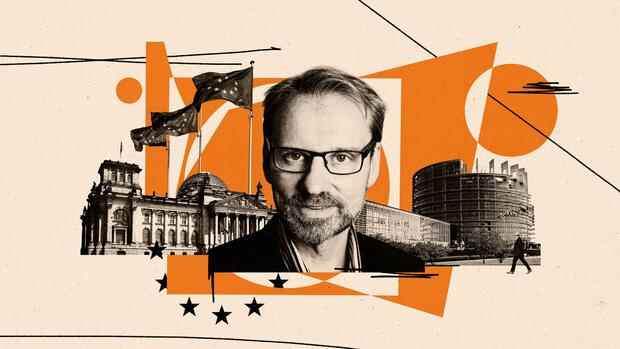Nonetheless, his future coalition partners have expressed their admiration for the professional manner in which he conducted the coalition talks. The Germans wanted and got a safe pair of hands.
And this is where it gets complicated. The traffic light coalition is not a political construct of the safe hand. It is the most daring political experiment in recent German history. Former Chancellor Gerhard Schröder came to power with the slogan not to do everything differently, but to do some things better.
Nobody knows anymore what the slogan of the Executive Chancellor Angela Merkel was. The traffic light coalition wants to modernize a stagnant, backward-looking country that is still stuck in the analog age of thought and – more importantly – analog industrial production. The German establishment still thinks that innovation comes from companies like Volkswagen or BASF. It ignores the fact that all high-tech successes in the US and China come from companies barely 20 years old.
Top jobs of the day
Find the best jobs now and
be notified by email.
Will Scholz take action?
Probably the most important statement in the 177-page coalition agreement is the section on start-ups – on pages 30 and 31. Germany is one of the most hostile environments for small businesses because the entire system of corporate governance is based on the support of a large and medium-sized cartel Company is aligned. This coalition wants to align the rules of the game.
Whether or not the climate goals will be achieved will not depend on the last world climate conference COP26 or other grandiose events, but on innovations that have to be made by companies that have yet to be founded. If you are wondering what the Greens and the FDP have in common, this is it. They hate each other.
The conversations between them were tense until the very end. But both belong to a minority of Germans who do not consider the fax machine to be the culmination of technical progress. Your presence in the coalition will be a culture shock for the SPD – a party attached to Russian gas and German diesel cars.
I find it difficult to reconcile what I know about the Ampel party’s ambitions with what I know about Scholz. Something is going to have to give way here. Maybe Scholz will go through a change.
But I can hardly imagine that he will stand up to Vladimir Putin if he threatens to cut German gas supplies. Will he tell the Russian leader that the future of Nord Stream 2 is now in the hands of independent regulators, the European Commission and possibly the European Court of Justice? Will he tell President Xi Jinping that Germany shows solidarity with the Lithuanian government and MPs affected by Chinese sanctions and not with German exporters? Angela Merkel did not do that.
There are no major reforms
What could happen is that Scholz will continue the opportunistic foreign policy of his predecessor, but adopt a more aggressive stance on domestic reforms. That wouldn’t be ideal, but it wouldn’t be the worst result either. An innovative, less corporatist Germany would also be advantageous for the EU.
Europeans who are hoping for a major reform of the Stability Pact will be disappointed. The new government only accepts a few technical changes: longer repayment periods for debt related to Covid and a change in the nonsensical method that Germany and the European Commission use to calculate the cyclical component of their debt rules.
The European Commission’s wrong assumptions about the potential growth rates of member states were one of the main causes of synchronized austerity amid the sovereign debt crisis. But that’s not really a big political reform. That’s what technical advisory boards usually do.
Like various historical European springs before it, the Berlin Spring could end as a purely psychological event that is later overtaken by gloomy reality. We won’t see tanks driving through the streets of Berlin, but we could see the stagnation of the Merkel years return. Their main characteristic was not the commission of evil, but the tendency to muddle through without a strategic goal.
There’s nothing in Scholz’s story that tells me he’s a great innovator. Putting together an improbably ambitious coalition is the most innovative act in his political life.
My hope is dampened by the realization that chancellors, not junior coalition partners, determine the course of politics. The success of this coalition would require an unlikely change – one the Germans did not choose.
So maybe it’s late autumn after all.
More: Scholz must quickly come up with his own ideas for European debt rules. A comment.
